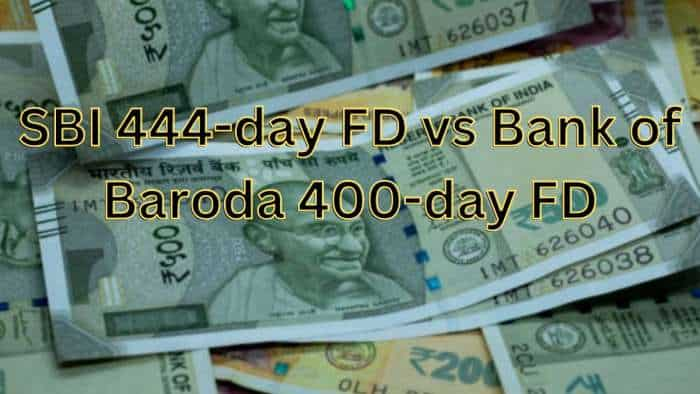Bank loan moratorium: Blanket interest waiver on all loans to be Rs 6 lakh crore, Centre tells SC
Bank loan moratorium: The Centre informed the Supreme Court on Tuesday that if it were to consider waiving interest on all the loans and advances to all categories of borrowers for the six-month moratorium period announced by RBI in view of COVID-19 pandemic, then the amount foregone would be more than Rs 6 lakh crore.

Bank loan moratorium: The Centre informed the Supreme Court on Tuesday that if it were to consider waiving interest on all the loans and advances to all categories of borrowers for the six-month moratorium period announced by RBI in view of COVID-19 pandemic, then the amount foregone would be more than Rs 6 lakh crore.
If the banks were to bear this burden, then it would necessarily wipe out a substantial and a major part of their net worth, rendering most of the lenders unviable and raising a very serious question mark over their very survival, it said.
A bench of Justices Ashok Bhushan, R S Reddy and M R Shah was informed by Solicitor General Tushar Mehta, appearing for the Centre, that this was one of the main reasons why waiver of interest was not even contemplated and only payment of instalments was deferred.
The top court is hearing a batch of pleas of various bodies including from real estate and power seeking sector wise relief in view of the COVID-19 pandemic.
Reading from the written submission filed in the top court, Mehta said that if the interest is waived on all the loans and advances for the moratorium period, with regard to all classes and categories of borrowers, the amount to be foregone would be more than Rs 6 lakh crore.
It is submitted that if the Government were to consider waiving interest on all the loans and advances to all classes and categories of borrowers corresponding to the six-month period for which the moratorium (deferment of payment of instalment) was made available under the relevant RBI circulars, the estimated amount is more than Rs 6 lakh crore, he said. Giving an illustration, he said that in case of State Bank of India alone (which is the largest bank in the country), waiver of six months' interest would completely wipe out over half of the bank's net worth which has accumulated over nearly 65 years of its existence. Continued payment of interest (including interest on interest) to depositors is not only one of the most essential banking activities but is a huge responsibility that can never be compromised as most of the depositors are bound to be small depositors, pensioners etc. Surviving on the interest from their deposits, he said in his written submissions.
Referring to the affidavit filed by Indian Banks Association on September 25, he said that State Bank of India has stated that interest amount from borrowers during six months moratorium works out to be Rs 88,078 crore (approximately) whereas the interest payable to the depositors during the said period works out to be Rs 75,157 crore (approximately).
Mehta said that in the Indian banking system for every loan account there are about 8.5 deposit accounts and highlighted the various financial reliefs already granted by the Central government.
He said that going any further may be detrimental to the overall economic scenario, the economy of the nation or the banking sector may not be able to take the financial constraints resulting therefrom.
Mehta also pointed out the sector-specific relief measures taken by the Centre for the small and mid-sized business/MSMEs including from sectors such as restaurants and hotels.
He said the Centre has promulgated emergency credit-linked guarantee scheme (ECLGS) of Rs 3 lakh crore providing additional credit at lower rate of interest, with 100 per cent government guarantee and no fresh collateral.
The scheme has been extended with higher financial limits to twenty seven COVID-19 impacted sectors including restaurant and hotel sectors, he added.
He said that though it may not be possible to give the exact percentage of the borrowers who have not availed of the moratorium and have deposited instalments in time; approximately such class would be more than 50 per cent.
Mehta said that granting relief to distressed small borrowers, the Centre decided that the relief on waiver of compound interest during the six-month moratorium period shall be limited to the most vulnerable category of borrowers who availed loan up to Rs 2 crore.
He said that RBI in its circular dated August 6 classified big borrowers (having the loan account of Rs 1500 crores and above0 and rest as ?not big borrowers.
Mehta added that the customising the reliefs to individual borrowers can never be done either by the Ministry of Finance or by the RBI as it involves crores of borrowers and therefore, it can be done only by respective lenders.
He said that so far as big borrowers are concerned, the RBI appointed an expert committee under the Chairmanship of K V Kamath which segregated various sector borrowers into 26 categories and gave parameters within which banks were directed to restructure the accounts.
He added that various steps are taken by different ministers under the Disaster Management Act, as against the wrong notion of petitions that functions of all ministers are to be discharged by the National Disaster Management Authority (NDMA).
In other words, so far as the economic impact of the present disaster is concerned, it is essentially the function of the Ministry of Finance and RBI to take measures under Section 36 of the Act and the question of NDMA stepping in would not arise, his written submission said.
The day long hearing conducted through video conferencing would continue tomorrow.
The story has been taken from a news agency
Get Latest Business News, Stock Market Updates and Videos; Check your tax outgo through Income Tax Calculator and save money through our Personal Finance coverage. Check Business Breaking News Live on Zee Business Twitter and Facebook. Subscribe on YouTube.
RECOMMENDED STORIES

Ppf interest rate maturity retirement corpus planning calculator how to get inr rs 85000 month tax free income from public provident fund calculations 80c tax benefits what will be interest amount

Reduce Home Loan EMI vs Reduce Tenure: Which prepayment option can help save Rs 55 lakh, & 7 years and 9 months on Rs 80 lakh, 30-year loan

SBI Latest FD Rates: This is what you can get on Rs 10 lakh investment in 1-year, 3-year, and 5-year tenures

SBI 444-day FD vs Bank of Baroda 400-day FD: What will be maturity amounts on Rs 6 lakh and Rs 10 lakh investments for general and senior citizens?
09:42 PM IST











 Loan Moratorium: Big EMI money interest relief! What borrowers must know
Loan Moratorium: Big EMI money interest relief! What borrowers must know Bank loan moratorium interest on interest waiver: Big relief to loan-takers, banks start crediting accounts
Bank loan moratorium interest on interest waiver: Big relief to loan-takers, banks start crediting accounts Moratorium interest-on-interest loan waiver: These loans not part of ex-gratia relief scheme
Moratorium interest-on-interest loan waiver: These loans not part of ex-gratia relief scheme Waiver of interest on interest scheme: Good news borrowers! RBI asks lending institutions to implement bank loan moratorium order
Waiver of interest on interest scheme: Good news borrowers! RBI asks lending institutions to implement bank loan moratorium order